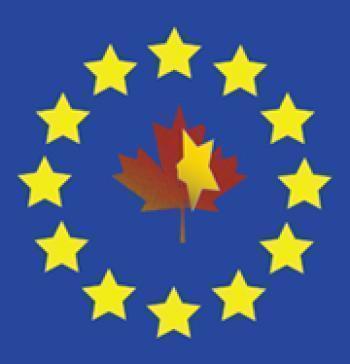“After more than four years of negotiations, Canada and the European Union have surmounted almost all obstacles in the way of concluding an ambitious transatlantic free trade agreement,” reports La Presse (translation mine). “Unless there are any last-minute emergencies, the Harper government and European Commission should announce they have concluded a deal by the end of October.”
The article, which is based on several anonymous sources, suggests October 18 was circled in Harper’s calendar book as a possible announcement date but that nothing is etched in stone. However, “the optimism is such that Canadian officials have already planned to trumpet the merits of the deal not only here in Canada but also in several European capitals, including Brussels, the seat of the European Union.”
The article suggests that the direct involvement of Prime Minister Harper in the negotiations (special-ordered by John Manley at the CCCE) has sped things up fivefold, which should give us all the jitters. Harper has been tearing up environmental protection policies, watering down environmental assessments of resource projects, and taking giant scissors to the social safety net in successive omnibus budget bills that were rushed through parliament with minimal to no debate.
The question we should all be asking in the lead-up to and immediate aftermath of a rumoured conclusion to the Canada-EU negotiations is what other unwanted or unnecessary (and probably both) policy changes the PM agreed to make just to get a deal done. Like the omnibudgets, Harper’s free trade deals are a direct attack on what we used to call “the just society.” They are carefully designed, with maximal input from multinational corporations, to dismantle government so “the market” (or the rule or profit) can run the show.
But don’t worry too much. La Presse reports that a vast communications strategy has been prepared to explain the ins and outs and blockbuster benefits of an EU deal once it’s concluded. Under normal circumstances, we wouldn’t be able to test those claims before the deal is signed and made public, at which point it’s virtually impossible to change. Until then, CETA will be good because the Great Leader says it’s good.
There is a catch for the government. This will be a “deal in principle” and not a completely finished text. The Harper-brokered agreement will need the thumbs up of each province and European member state before they start preparing something for Canada and the Commission to sign several months down the road.
So there is the option of a provincial government (and preferably all of them) letting the electorate decide if CETA is worth the four years Harper spent negotiating it. That’s not an option many of them will willingly take unless we insist that they have to. We’ll have an action up soon — by month’s end I suppose — to help you push for a public provincial review of the EU deal if these latest rumours do turn out to be true.




